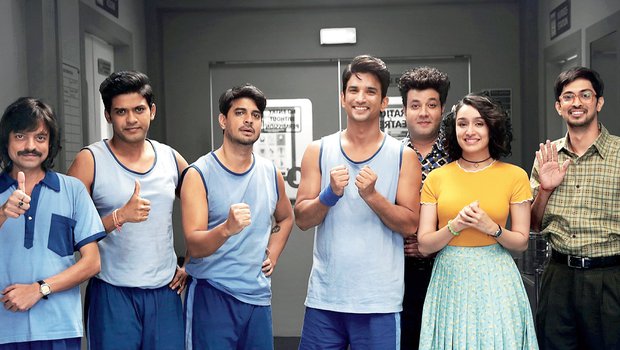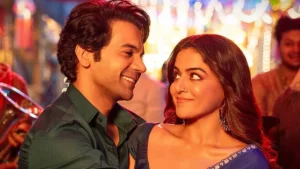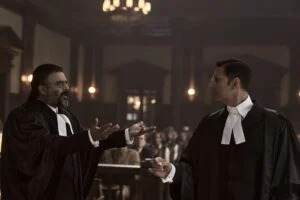
Back in 2006, I remember watching the Malayalam film Classmates, only to emerge over-awed by its magic. One that narrated a layered campus story set in the ‘90s, the film felt fresh as its release period did not witness too many films milking nostalgia to obscene levels. Lal Jose’s film was a rare instance of a campus story told right. Director Nitesh Tiwari’s Chhichhore emerges from a very similar template but sans the layers and emotional complexity. There are characters who – in the most pedestrian lingo – are atrangi and extremely likeable, exuding a certain obvious relatability to whoever grew up in that era. For the younger lot, the film might appear to be a less-glamorous fantasy – sometimes comic-book-like or otherwise utterly soggy. Bollywood’s obsession to plague the genre with needless layers of aspiration and generic coming-of-age notwithstanding, Chhichhore delightfully differentiates itself by not becoming one of the many ‘nostalgia fests’ by balancing the blend with a well-delivered message.
To my surprise, Chhichhore opened to a sober family setup where Aniruddh (Sushant Singh Rajput) is seen to be a typical parent to his adolescent son, Raghav. Perhaps in an effort to project the characters’ affluence, the overly done-up and dim-lit house didn’t do the trick the for me. Especially as the focus was on the son who was on the verge of his engineering entrance results, with insurmountable pressure within him. He divides time with his father and his mother Maya (Shraddha Kapoor), who are now divorced. One thing leads to another, Raghav attempts suicide by jumping off a high-rise building, leaving him in a critical state and his parents devastated. In an endeavour to make amends or to calm his guilt down, Aniruddh begins to narrate his happening campus story to his son by his bedside. Old friends reappear to revive fond memories from the past…
ALSO READ: ‘Dangal’ review – earthy, emotional, and suitably mainstream
Running for close to 150 minutes, Chhichhore’s masterstroke is in the way it has been edited (Charu Shree Roy). For a story which has two dissimilar tracks running in parallel, the film’s screenplay (Nitesh Tiwari, Nikhil Mehrotra, Piyush Gupta) binds them together with connections that gleam with great attention to detail. Amplified further by Roy’s fine choice of frames, Chhichhore seldom makes the present-day portions less significant amid all the commotion that the yesteryear one evokes. Secondly, the camera (Amalendu Chaudhary) composes both eras to optimum levels without being overly indulgent. The colours in the present-day portions are on the duller side whereas the campus days, though youthful, aren’t excessively vibrant. The textures, the mood and the character sketches feel organic and they co-exist in a setup that isn’t campy but lived-in.
Humour, predictably, is a mainstay in the film. Even though Chhichhore assigns one unique characteristic to each of its people, the comedic bits originate from a zone that is real and familiar. The balance is just right in associating itself to the laugh-out-loud genre without entering the slapstick zone. There are times when we feel how Chhichhore gets a little too convenient or maybe a little too soft in its worldview. Then again, we understand how this is exactly the frothy, feel-good zone that Tiwari wants his film to be in. The climatic jolt – much like the director’s previous venture Dangal – is refreshing, even though the use of slow-motion is somewhat silly. Nevertheless, Chhichhore succeeds in establishing the tension while also delivering its central message to perfection.
Pritam’s music is extremely easy on the ears, even though the absence of a hummable signature number is evident. Backed by reasonably robust writing, Chhichhore‘s spirits are dampened badly by the production design, makeup and costume departments. While the look-and-feel of the ’90s portions are notably underdone from a visual point of view, the present-day bits are a little too extra. Look-wise, none of the characters make the cut in their older selves.
Performances are almost flawless, especially in the flashback segments. Sushant Singh Rajput, in a bizarre faux beard, is largely convincing even though one wishes how the film had explored his personal relationships a little more. Shraddha Kapoor does not get much scope to perform but the actor does stand out as the only female character of significance in the film. Strangely though, the actor in the present-day portions does not look old enough to be the mother of a teenager. Varun Sharma is a riot as ‘Sexa’ and is also surprisingly believable in serious portions. Naveen Polishety as the motor-mouth, expletive-spitting ‘Acid’ is a revelation and his diction is easily the best modulated of all actors. The ‘Mumma’s Boy’ represent in the gang, Tushar Pandey plays ‘Mummy’ with great flair, with his wide smile and perennially exasperated demeanour doing great service to the film. One of his final scenes (a phone call with his son) is one that gets its emotional tone just right. Saharsh Kumar Shukla with a composed Amol Palekar-like vibe and a warm presence is perfect to be a part of a period piece as Chhichhore. In comparison, Tahir Raj Bhasin (as Derek) and Pratiek Babbar (as Raggie) appear stiff, possibly because their characters are designed that way. Bhasin, whose role in the group reminded me of Ali Fazal’s Zafar in the Fukrey series, creates a mammoth impact towards the final reels. Babbar’s baddie act is way too one-note to strike any impact even though the actor delivers what is expected of him.
One area where Nitesh Tiwari interestingly scores is in his decision to keep the nostalgia bits to organic levels. We are, for sure, reminded of the early ‘90s hullabaloo. From making the best of life in a college hostel, godawful mess food, Gold Spot, high-waisted jeans, girls referred to as Halley’s Comet in engineering campuses – the film has it all. However, the film’s decision to not piggyback on pop-culture remnants is applaud-worthy. Chhichhore, for that matter, is more of a believable Student of the Year. No character is seen studying on this campus. We are not told about the characters and their grades. Yet with sports becoming one of its anchoring points, the film effectively knits together friendships, a relationship and a range of myriad of characters to its simple framework. That way, except parenting to an extent, Chhichhore does not delve deep into people issues. On second thoughts, there are barely any intricate problems for the characters to deal with. The battles are broad-stroked with the solutions being simple and straight out of self-help-books. The fundas may not always work but yet I didn’t quite mind the film as a well-intentioned, breezy, popcorn entertainer on a rainy Friday in Mumbai.

